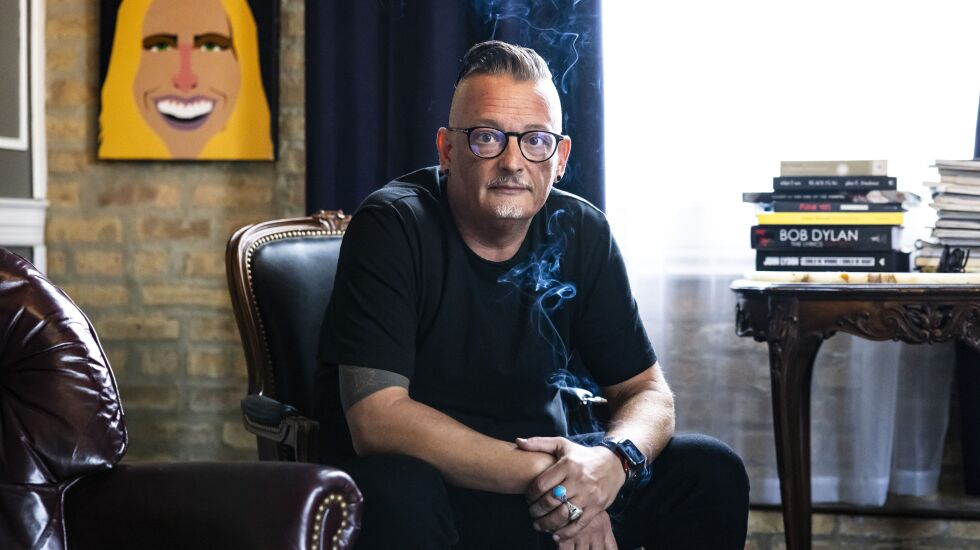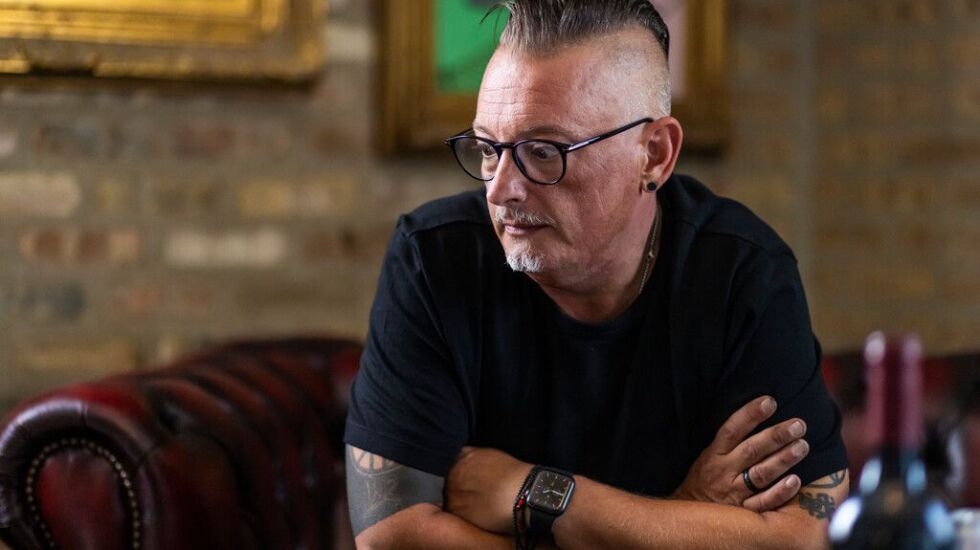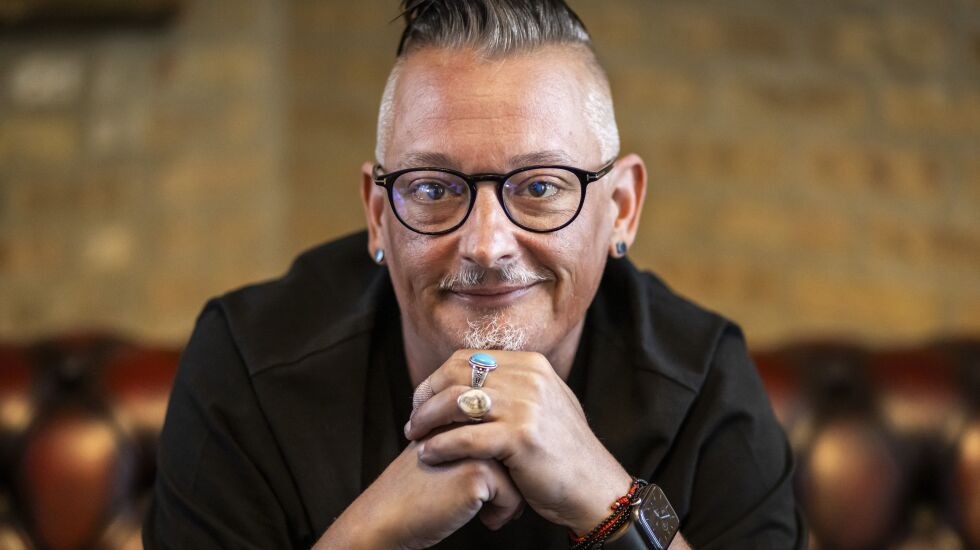
The great Joey Ramone once said, “To me, punk is about being an individual, and going against the grain, and standing up and saying, ‘This is who I am.’ ”
It’s a sentiment that Riot Fest owner and co-founder Mike Petryshyn has taken to heart lately as he and his team prepare to kick off the 17th edition of the perennial event in Douglass Park this weekend, which comes at a personal juncture in the life of the man behind the scenes whom many know as “Riot Mike.”
Just weeks before revealing the 2023 lineup in May (this year headlined by Foo Fighters, The Postal Service and The Cure), Petryshyn had a revelation of his own: He was diagnosed at the age of 44 with autism spectrum disorder.
In this exclusive interview, he opens up for the first time about his diagnosis, inviting the Sun-Times to the Riot Fest headquarters on the Near West Side where, in the background, a dedicated team of nine was buzzing about the loft building amid final festival preparations.
“I’m sure I’ll be thinking back on [this diagnosis] for the rest of my life in a way. … When I talked with my doctor, it was like a floodgate opened, and things finally made sense,” Petryshyn shares. Such as why he can focus on seven to eight things at a time but has trouble verbalizing them, why he can think of solutions to problems, but struggles with execution, or why he was into punk music so early on in his life that ultimately led to his calling.
Petryshyn recalls first hearing the Sex Pistols, the Clash and the Dead Kennedys in the fourth grade and now understands why they became such a “hyper focus”: Punk music gave him an outlet for the communication that he often struggled with, and as he says, “I felt a belonging.”
While most social situations made him constantly self-correct, concerts were not one of them.
“It’s weird, but I think events like Riot Fest are the most intimate place for 50,000 people to come together,” he says.
Looking around Petryshyn’s third-floor office, it’s easy to see just how much music has played a role in his life and work. There are Public Image Ltd posters on the walls near a triptych of portraits of the Riot Fest executive team done by Roger Deuerlein, who created the Descendents’ Milo caricature.
On a table sits a stack of coffee table books about Black Flag and punk T-shirts, as well as a dozen notebooks that have his notes and scribblings from over the years. (When he opens them up, he flips right to the page about Butter Stamos; on another page is a note about wanting to break a Guinness World Record.)
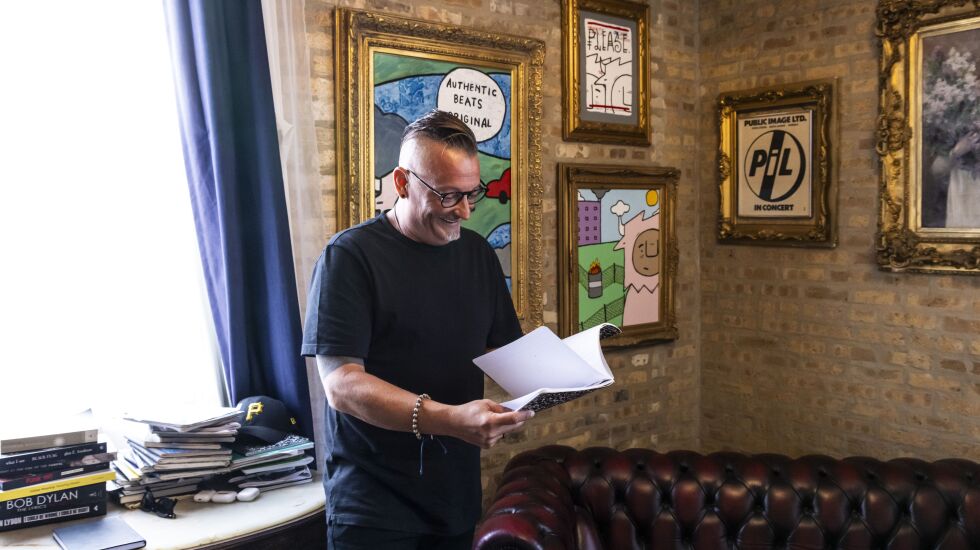
Petryshyn’s psychiatrist, Dr. Susan Bank, who spoke for this article with his permission, says that there are a few reasons those with autism may cling so much to music.
“One of them is sensory,” she says. “There are all kinds of articles that show people can really find that music has a calming effect on the nervous system. For people with autism who maybe have difficulty with language communication, music impacts them emotionally and sensorially in different ways.”
Bank, who started working with Petryshyn in 2013 when he was initially diagnosed with the linked condition of ADHD, adds, “For Mike and people who are moved more by rock music or punk rock music, I think it kind of expresses a lot of that emotion.”
In fact, there are ways in which being autistic has helped Riot Mike in his role, even as much as getting those incredible reunions of the Replacements, the Misfits, Jawbreaker and Naked Raygun over the years.
“One thing about autism is that, yeah, we come off in certain situations as caustic, but it’s generally truthful,” says Petryshyn. “What I find in bands that want to reunite, there’s generally one or two people I connect with really deeply.”
Petryshyn says he wanted to open up about his diagnosis to help others and perhaps remove some of the stigma.
“It’s for the kids. It’s for parents. Like, my parents had no idea. I was born in 1978, no one was thinking about this. ... If anything, it was just like I was ‘difficult but lovable.’ I think that’s how my mom described me,” he shares. “I think it’s important for parents who maybe have children that are diagnosed with autism and thinking what their future can be. You can own your future in a way. ... For parents, they don’t have to look at it as a negative, you know. Just build the structure. ... It’s really about having people around you who will know how to give you the tools.”
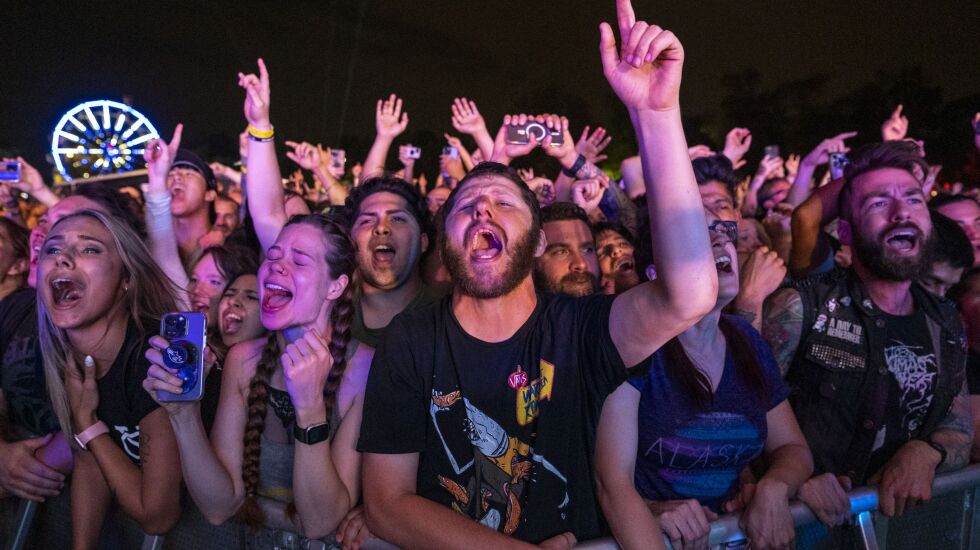
Petryshyn continues to do just that with his festival team, in particular the social media marketing genius “Riot Jeremy” who is his “best collaborator and the one person that can communicate for me” and his good friend George Herrera, who leads the fest’s many community engagement initiatives.
“George understands me better than anybody on this planet. He knows my heart of wanting to provide opportunity and using Riot as a catalyst,” Petryshyn says. “We are here. We want people to start businesses out of this.”
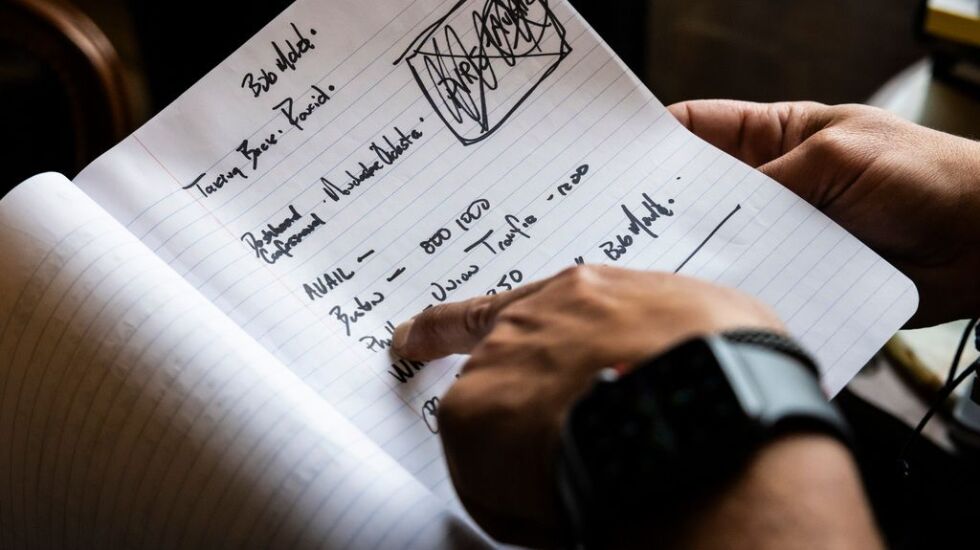
He points to himself as an example; having grown up in Buffalo, New York, he moved to Chicago in 2002, and with Sean McKeough (who died in 2016) established Riot Fest in 2005 as a much smaller club event, just because he wanted to see some of his favorite acts take the stage together. By 2012, it became the mass outdoor event we see today, and remains one of the largest independently run festivals in the country.
“I didn’t go to school for business. I did this on my own. I learned along the way. … You learn to trust people who have your back, and you have their backs equally. I see a lot of that dynamic in the neighborhoods [we are in]. And if we are a catalyst to some extent, that’s amazing,” Petryshyn says.
It’s devastating when Riot Fest is seen as inhibiting community growth, he said.
Due to community pushback at its former Humboldt Park site, Riot Fest moved to Douglass Park in 2015. The furor followed the fest to its new location, with pushback from North Lawndale residents who decried limited access to the park and alleged damages incurred. Riot Fest hosted community meetings large and small to work with groups one-on-one to address concerns and implemented even more community initiatives this year. Ultimately, the Chicago Park District unanimously approved the fest’s 2023 permits in June.
“I will take what we have done this year and put it up against anyone nationally. With our model and how we did it, it’s authentic, and it feels right,” says Petryshyn. “We had 700 applications this year for 200 positions to work at Riot Fest from [residents of] North Lawndale and Little Village.”
Even so, he says, “Sometimes the residual dirt is hard to clean yourself off of. We’ll always be remembered as the festival that got kicked out of Humboldt Park ‘justly’. And then with Douglass Park, we’re the ones that can’t get along with the community. Neither are true.”
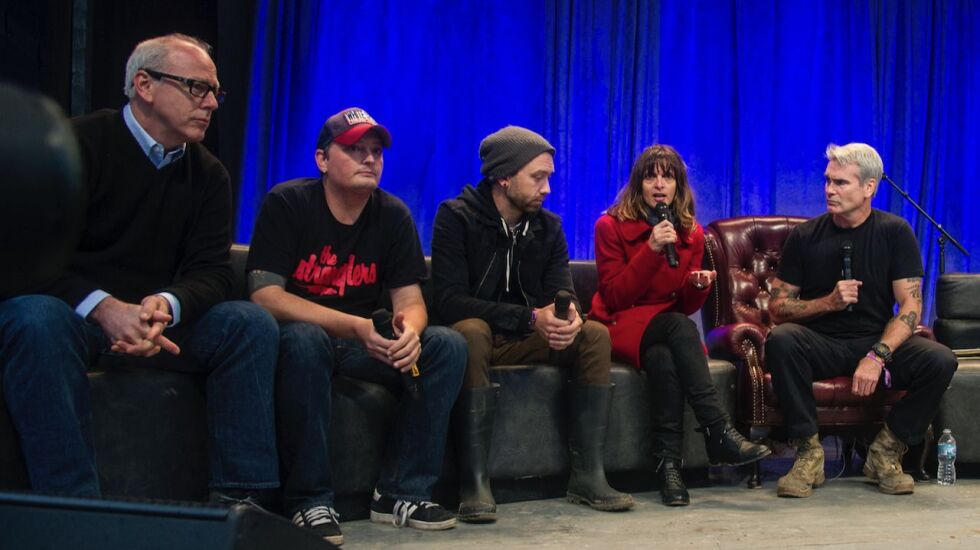
Petryshyn says if the fest has to move again, there’s “the same list [of options] from eight years ago. … Nothing has really changed. I know exactly what’s out there, and what we can do where.”
Regardless of where it’s held, he has many plans for Riot Fest’s future.
“How I see it, along the way, Riot Fest became important to people. People get married here [in the on-site wedding chapel]. That’s crazy. I always thought it’s because of whoever is playing. And it really isn’t. It’s more than that, and that’s meaningful,” he says.
“Because of that, I have some wicked plans. And yes, festivals are a part of it, but I think I can do more good on this planet, and I think everybody who has over the years underestimated Riot Fest or me won’t see it coming, and it’ll be my way of passing it forward to the next generation.”
